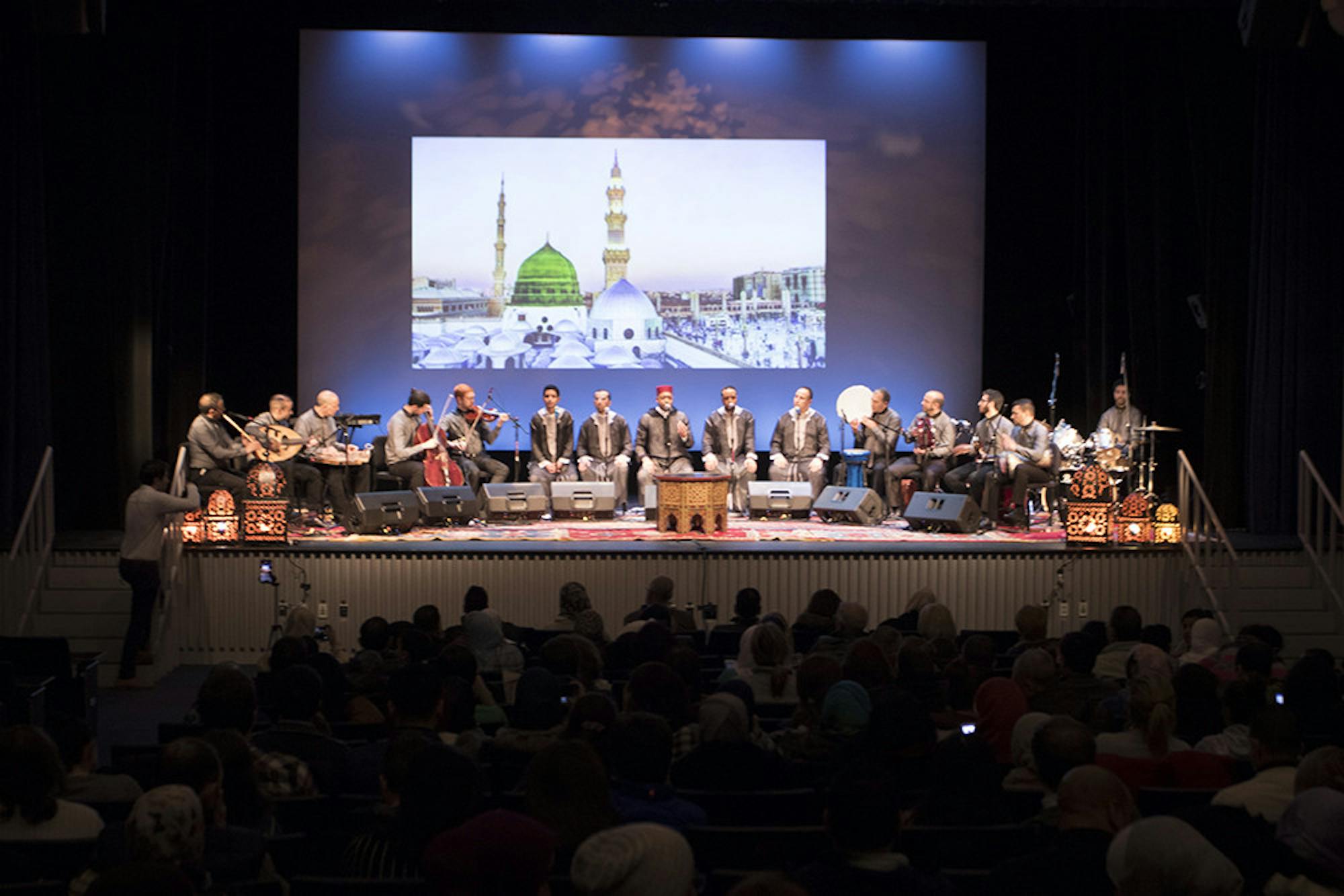The Noor Ensemble’s lead singer, Abdou Adam, only had to sing two words last Saturday at his concert before the rest of the audience joined in.
Even when the band tried to accompany them with instruments, the audience took over once again, setting their own pace: “Wa salaat wa salaam ala nabii,” meaning “prayers and peace be upon the prophet.”
This verse, which praises the Prophet Muhammad (the central figure of Islam), echoed richly in Cohen Auditorium as the full house rose in laughter, clapping and cheers.
On this day known as al-mawlid al-nawabi, about 400 people gathered to celebrate the Prophet's birthday. The 14-player music group played religious pieces in addition to well-known songs from pop culture. These were songs to which all attendees -- from the elderly family members to the small toddlers roaming around the auditorium -- could sing or dance along. One piece featured the instrumentals from Lebanese singer Fairouz’s “Nassam ‘Alaina,” overlain with Arabic lyrics proclaiming “Oh! Prophet.”
Noor Malki (GE ’99), who attended the event with her family, said that the concert was lively and fun -- a mix of religion and culture with the ensemble engaging with the audience.
The Noor Ensemble's annual concert at Tufts originated after Richard Jankowsky, an associate professor in the Department of Music, was introduced to the group while planning a symposium on Music and Islam back in 2012.
Jankowsky said that the concert had attracted a large audience from the Boston Muslim community and he realized that there was an opportunity to create a “safe, welcoming space for members of the region’s Muslim community to come together in celebration, and for members of the Tufts community to learn about Islamic and North African culture through a genuine community event.” Since then, the concert with the Noor Ensemble has been held on campus every year to celebrate the mawlid.
Moroccan music, though constantly in flux as tastes change, typically comprises of rhythms, instruments and melodies that are recognizable across genres. For example, all the singers sing in unison, as opposed to in harmony, and the music utilizes quarter-tones that create a 24-note scale. Ensemble members played instruments such as the qanun (a guitar-like wooden sound box), the lute, the bamboo flute, the violin and the cello.
While some sects of Islam, such as Sufism, celebrate the prophet through music, others believe it is not appropriate, according to Program Director of Middle Eastern Studies Ken Garden.
“If you go to mosque on Friday, this would be the time of communal prayer, and there would be a sermon, everyone would pray collectively and there would no music," Garden said. “Now there is recitation of the Quran, which some people would find musical, but the distinction is that it’s usually recitation or chanting, not singing.”
Whether or not Muslims should be noting the prophet’s birthday at all is a point of contestation amongst the Islamic sects, according to Garden.
However, as Adam mentioned in Arabic towards the end of the concert, those attending on this night should honor the prophet by unifying and praying for those who are suffering and unheard. For attendee Amine Ghazioui, a senior at Northeastern University, Adam’s message is a reminder of the ban on citizens from predominately Muslim countries that Donald Trump enacted the day before.
“By accident this [ban] happened [yesterday], and the hosts did mention it,"Ghazioui said. "It doesn’t affect Morocco, but that doesn’t exclude others we must care about, our Muslim brothers and sisters and refugees, generally all humans. This event was a reminder for us to just be grateful and see the others who all live here.”
The Noor Ensemble celebrates al-mawlid al-nawabi






